A few years ago, we were trying to set up a collective of protest musicians, writers and poets, each with a different set of political ideologies and creative practices. As we each shared the values that we believed should bind us together, one of the members, a close friend and musician shared let the collective be born from friendship. Dosti zindabaad saathi, kranti zindabad!
Aristotle once said that there are three kinds of friendships: that of pleasure, of utility and of virtue. He was of the opinion that it was friendships bound together by virtue that lasted the longest. But virtue is never a stable concept, nor an easy consensus; it changes with the desires and horrors of our times.
We can’t choose our families, but we can choose our friends- and as a close friend, a transgender activist recently shared, friendship offers a different model of family, free from moral and ethical constraints. In our many years as a collective, we have worked, at times unconsciously, with friendship as a personal and political practice. Guided by intuition and belief, we have entered unexpected passages, full of thrills, tricks, surprises and on some occasions, bad falls! Still we find ways to pick each other up, dust ourselves and carry on, as another friend advised us. The last two years have torn at the seams and acutely sharpened the differences in our social and political locations. Haunted by the fear of one’s own death, safety of loved ones, loss of livelihood, daily survival, people have hovered on the edge, between self and other.
Working through the pandemic with a cross section of people, we heard many stories where when the familiar felt estranged and people found care and shelter in the most unlikely settings, to share vulnerabilities. And so new friendships are born while old friendships transform. Over the phone from distant lands, in the course of sharing a meal, a warm welcome, a large meal, an unexpected letter, a sudden phone call, shelter from the storm, we have discovered intimacy, solidarity and encouragement in a very special way.Friendship has a mysterious essence.
It plays out spontaneously and with deliberation, giving and taking, in gestures and silence, like in the last moments of the night, singing that one song which we all know. Friendship might allow us relief and frivolity even as it demands rigor and responsibility. Lulling us to rest, and pushing us along, we move collectively with a sense of danger and risk. In proximity and distance, friendships weather with the passage of time. Some stay, some drift. Some arrive, some depart.
The word ‘Xenos’ can mean both stranger and friend. ‘Xenophobia’ is the fear of foreigners and strangers, which is more popular than sadly, a less common work emerging from the same root word, Xenophilia- the love of strangers or or unknown objects. ‘Philia’ is affection, friendship, love and loyalty that connects people not by kinship, but a set of behaviours, values and shared desires.This October Jam is dedicated to the political and creative practice of our work, where both within and outside, a sense of friendship allows for critical accountability, empathy, acceptance while celebrating small victories and lamenting on collective loss. At maraa, we have resolved to create this space where friendships, if sustained, can translate into long lasting collaborations and daring imaginations. The spirit of October Jam has always been rooted in friendship. This October, we demonstrate acts, signs and fllows of friendship in little ways.
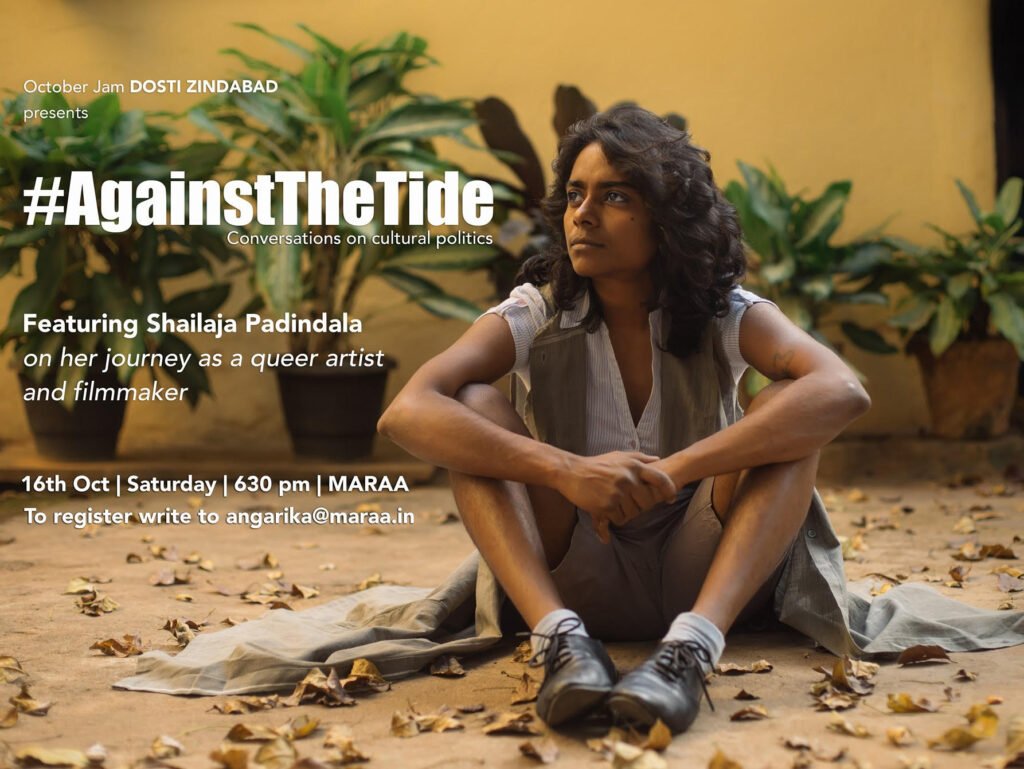
AGAINST THE TIDE: conversation series on culture, arts and politics. Featuring Shailaja Padindala, Film-maker
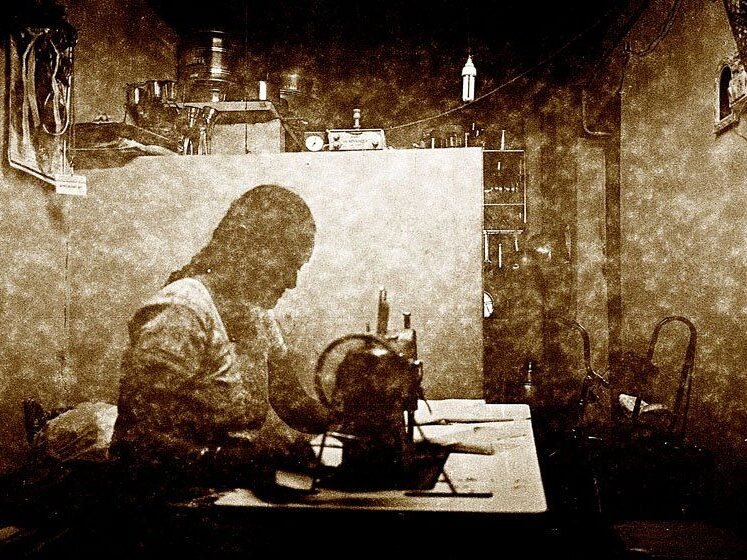
Bevaru: A written edition of experiences, views and emotions of women and migrant workers in Bangalore
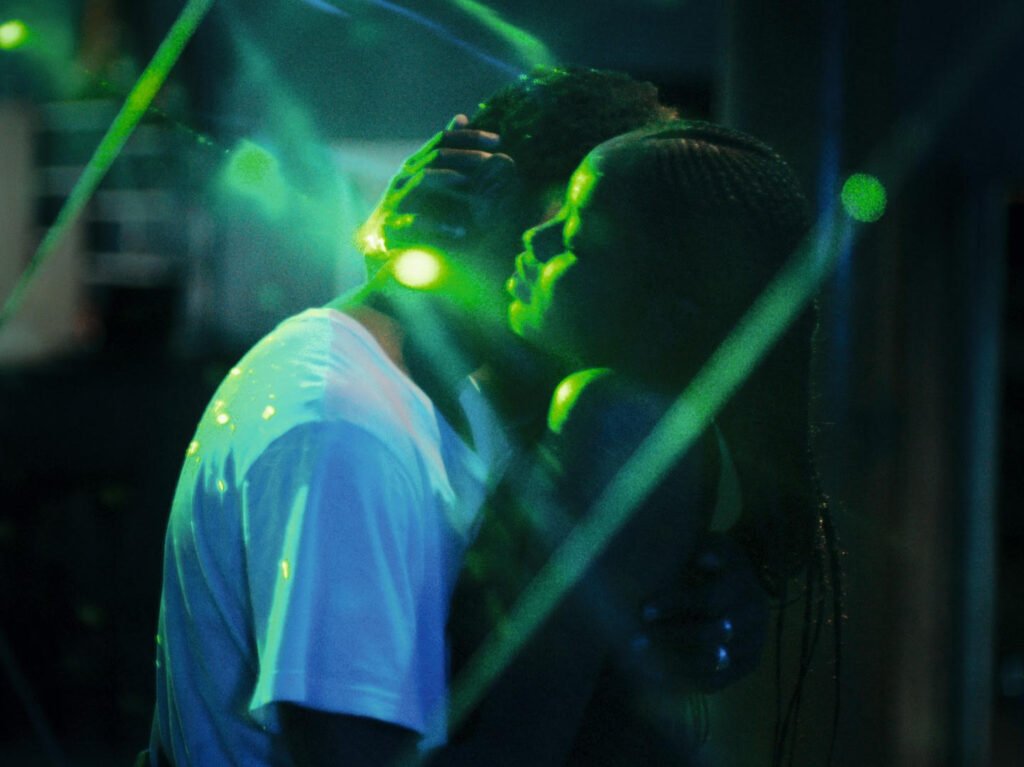
Film Screenings: Goopy Gyne Bagha Byne, Atlantis, ONE SINGS ANOTHER DOESN’T
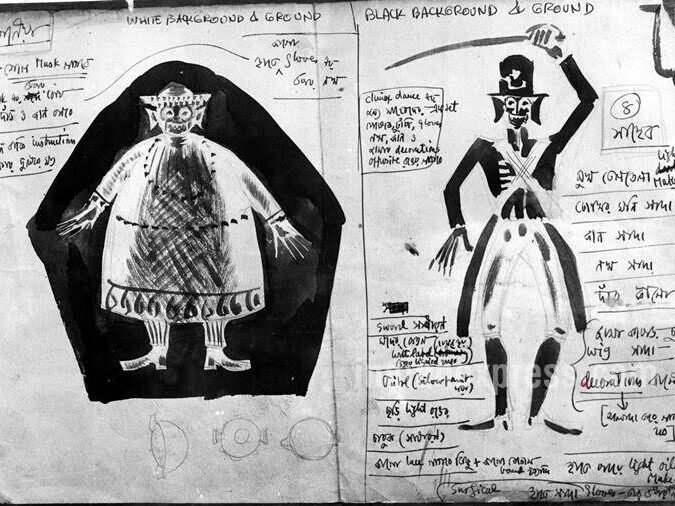
IDAKINI KATHAYAARATHAM | Performed by Manalmagudi Theatre Land, Directed by Murugaboopathy
in the past, Homo sapiens has led to the greatest shift in human evolution, the migration of mankind, which continues to this day despite the destruction of numerous human beings throughout history as a result of the migration.
In this migration, history is the collection of perishable stories of rejected and tortured bodies. These bodies are powerless and uncomplicated. We feel the land when we realize how powerless bodies that are not a part of these categories are of the state, the ruling class, the ethnic group, the caste and the religion. When a body is disconnected from the land, it will become powerless, unhomely and easy to destroy by anyone. We can understand that the Jews of World War II, the genocide of the Romas, the genocide of the Armenians and in the pandemic, the bodies of migrant workers who tottered all over world with the burden of their children and domestic animals in the boiling tar roads, are all landless / bodies exhumed from the land.
Manalmagudi Theater land traces out the stories from the bodies of the millions of Southeast Asian & Malaysian Tamil refugees who were so powerfully decimated and destroyed in the construction of the “Siam Death Railway” to the present day indigenous refugees, who deformed in the openness of rail tracks with loaves of bread – without any basic human dignity. Through the jungles of Siam, the lengthy railway line it travels through the theatreland. Since ancient times, those who have been killed in the displacements and become folk deities, are going to awaken in the theater space with the voice of voiceless.
Children, the divinities walking past the crisis of war, disasters & environmental destruction hugging dolls their chests and sowing hope all over. Play receives these children as themselves with their dolls laughing at exploitation and oppression.
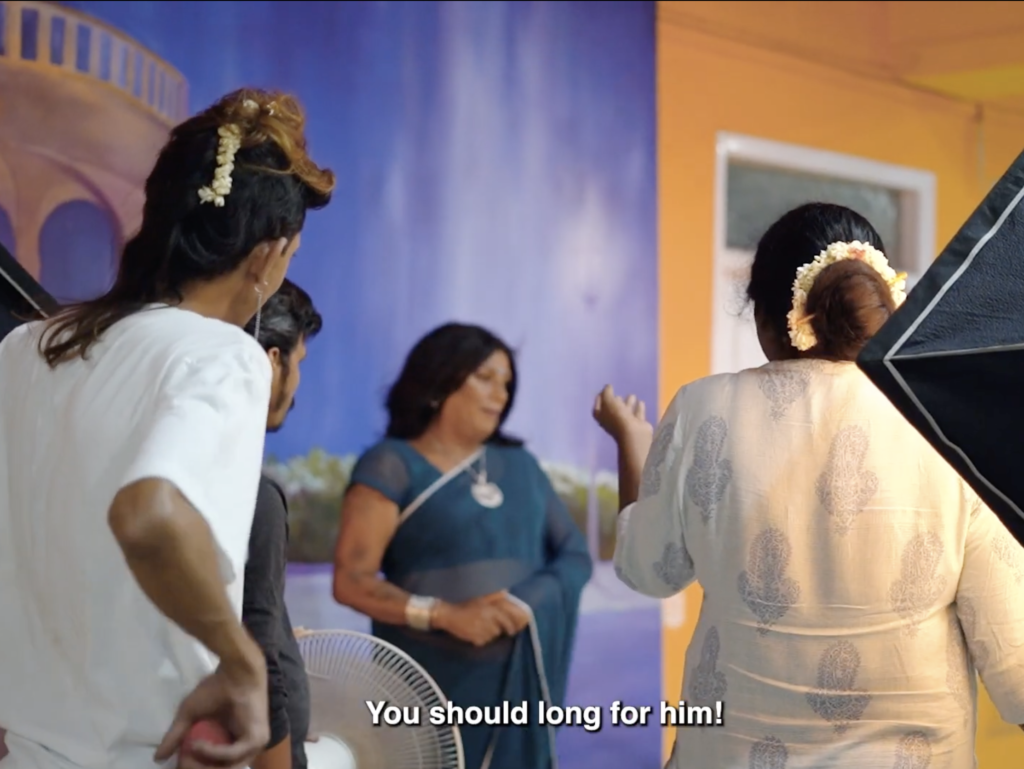
Truth Dream | Chandini, co-founder of Payana (an organization working towards protecting the rights and dignity of the sexuality minorities community in Karnataka) a poet, a transactivist and a dear friend, called us to share the idea of ‘TRUTH DREAM” a photo exhibition which will feature 12 of her friends, who are now in their 50s and have dreamt of becoming someone they desired. The twelve community models believe that they will transform as they embody their fantasies as cabaret and classical dancers, ideal women, queens and goddesses. “It is a process for all of us to feel the closest to our dreams and reveal our inner beauty. We could never fulfil our dreams fully, this process will transform each one of us. It will also make society and the younger generation recognise us differently.” shared Revathi, a renowned writer, actor and activist who is also part of the show. The exhibition also subtly and playfully shift notions of beauty, gender, sexuality and caste discrimination. Many friends have agreed to come on board to realise this project from costume designers, to makeup artists and hair stylists, writers to backdrop designers and photographers!